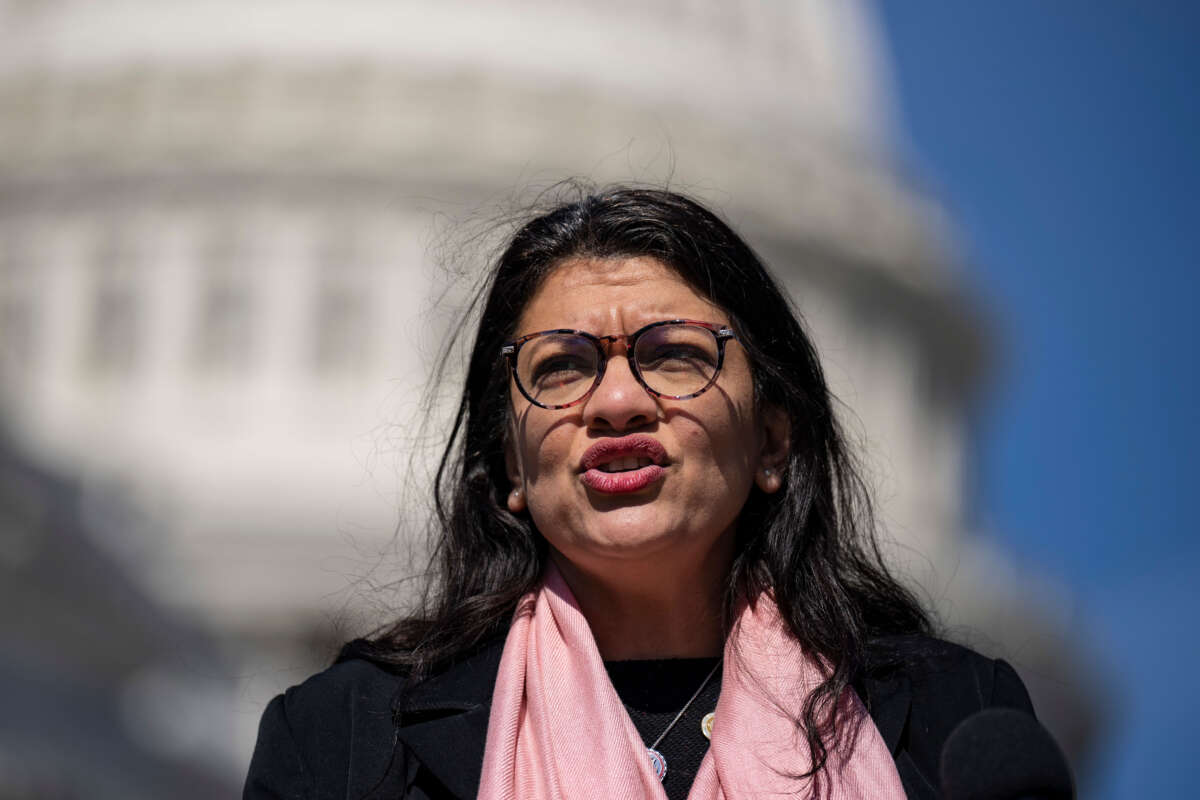Rep. Rashida Tlaib (D-Michigan) introduced a bill on Tuesday aimed at reforming some of the most predatory features of the credit system in hopes of uplifting millions of Americans whose credit histories have been tarnished by fraud, abuse or medical debt.
The Restoring Unfairly Impaired Credit and Protecting Consumers Act would reduce the length that adverse information stays on credit reports from seven years to four years, and require credit agencies to remove negative information that came as a result of fraud or predatory practices like loans garnered from fraudulent for-profit colleges.
The legislation would also establish a pathway for abuse survivors to get information stemming from financial abuse removed from their credit reports, and establish free credit reports and identity theft protection for certain people, particularly people who are susceptible to identity theft, like seniors.
Crucially, the bill would bar medical debt from appearing on credit reports. Medical debt is the most common form of debt on credit reports, and research has found that it is responsible for huge swaths of financial suppression across states where access to health insurance has been limited by politicians.
“The use of credit reports — which frequently contain errors — is now more than ever a huge barrier to a thriving life for many of our residents. Americans should not be denied access to basic needs that improve their quality of life, like employment, housing, or transportation because of medical debt,” Tlaib said in a statement.
“Our neighbors should not have to go without necessities because they fell victim to fraudulent activity or predatory lenders. Survivors of domestic and financial abuse do not deserve to have debt resulting from that abuse on their credit report,” Tlaib continued. “This bill is about fairness, opportunity, and justice.”
Credit scores historically work to suppress poor people and Black and Latinx populations, and have long been criticized for making it even harder for people to pull themselves into financial or housing stability, further embedding cycles of debt and poverty. The current credit system has only existed in its current form since 1989, and was created on the heels of the Reagan administration which helped kick off the era of sky-high household debt that crushes Americans today.
Progressive lawmakers have long fought against the credit scoring system, saying that it is in dire need of reform in order to keep it from its current role of financially suppressing already oppressed populations. Some consumer advocates have called for the entire system to be abolished, criticizing the for-profit companies that assess people’s ability to access things like housing through a discriminatory scoring system.
Tlaib’s bill has been endorsed by several advocacy groups, including the Consumer Federation of America and Public Citizen.
“The current credit reporting system creates unnecessary economic barriers that hinder millions of Americans from accessing basic needs,” said Candice Milner, racial equity policy associate for Public Citizen’s Congress Watch division. “Rep. Tlaib’s bill addresses the failure of credit agencies to ensure accuracy in their credit reporting while also providing tools for victims of predatory lending and financial abuse to repair their credit. If passed, this bill will prevent millions of Americans from experiencing economic ruin because of destructive credit reporting.”
Our most important fundraising appeal of the year
December is the most critical time of year for Truthout, because our nonprofit news is funded almost entirely by individual donations from readers like you. So before you navigate away, we ask that you take just a second to support Truthout with a tax-deductible donation.
This year is a little different. We are up against a far-reaching, wide-scale attack on press freedom coming from the Trump administration. 2025 was a year of frightening censorship, news industry corporate consolidation, and worsening financial conditions for progressive nonprofits across the board.
We can only resist Trump’s agenda by cultivating a strong base of support. The right-wing mediasphere is funded comfortably by billionaire owners and venture capitalist philanthropists. At Truthout, we have you.
We’ve set an ambitious target for our year-end campaign — a goal of $250,000 to keep up our fight against authoritarianism in 2026. Please take a meaningful action in this fight: make a one-time or monthly donation to Truthout before December 31. If you have the means, please dig deep.
